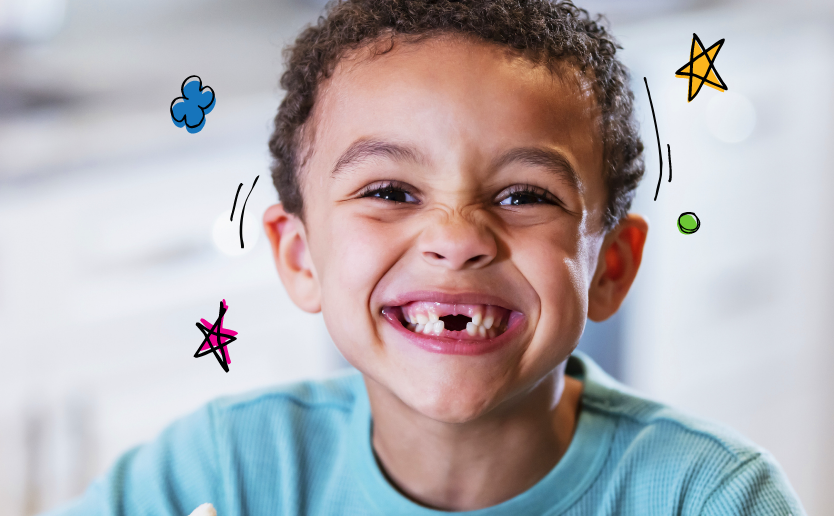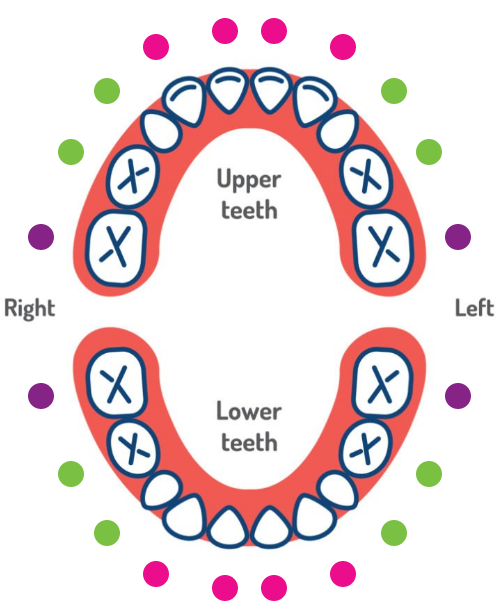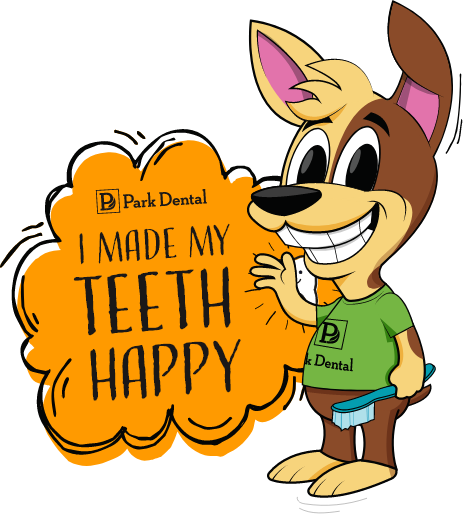
Protecting Your Child’s Baby Teeth
Baby teeth play an important role in your baby’s development. With Park Dental’s Children’s Care Program, we are proud to help families throughout the Twin Cities, greater Minnesota and western Wisconsin protect their children’s teeth and develop healthy dental habits that will last a lifetime.
Why Are Baby Teeth Important?
Baby teeth have many important jobs. Not only do they help children chew properly, but they also help them speak and develop their smile. Plus, baby teeth act as placeholders for the permanent teeth that are growing under the gums.
Why Are Baby Teeth Important?
If a baby tooth comes out earlier than it should, permanent teeth can take over the empty space, making it difficult for other adult teeth to find space later, resulting in crowded or crooked teeth. By taking good care of your child’s baby teeth, you can help prevent this from happening and put your child on the path to a healthy smile for life.
When Do Baby Teeth Appear?
When a baby is born, the 20 primary (baby) teeth have already developed in the jaws. In general, primary teeth erupt (break through the gums) at the following ages:
- 6 months to 1 year
The first tooth usually appears. Typically, teeth appear first in the top and bottom front area of the mouth, with the front four teeth erupting first. - 13 to 19 months
First upper and lower molars appear - 23 to 33 months
Second molars appear

How to Care for Baby Teeth
You can begin to protect your child’s teeth before they even push through the gums. During the first few days after your baby is born, begin cleaning the gums with a moist gauze pad or washcloth.
Your child’s teeth can begin to decay as soon as they appear. This is often called baby bottle tooth decay, as a common cause is prolonged exposure to sugary drinks. Using a bottle as a pacifier or putting your baby to bed with a bottle can also raise the risk of tooth decay.
To prevent this, avoid putting drinks that contain sugar in your baby’s bottle. Because bacteria is also passed on in saliva, don’t lick your baby’s feeding spoon or put pacifiers in your mouth. It’s also a good idea to have your child begin using a sippy cup by their first birthday.
How to Care for Baby Teeth
Follow these additional tips to keep your child’s teeth healthy:
- Start brushing your child’s teeth right after they appear. Brush gently twice a day with a child-sized toothbrush, using a tiny amount of fluoridated toothpaste (about the size of a grain of rice).
- Take your baby to the dentist for the first time after the first tooth appears or by their first birthday. After that first visit, your child should visit the dentist every six months.
- When your child reaches age 3, begin using a pea-sized amount of toothpaste.
- When you notice teeth coming in close together, with two teeth touching, it’s time to add flossing to the routine.
- At age 6 or 7, most children can brush and floss their teeth themselves. Be sure to supervise your child when they brush on their own, making sure they brush thoroughly and don’t swallow toothpaste.
Trust Park Dental with Your Child’s Dental Care
At Park Dental, our team is dedicated to making your child’s visit as fun and comfortable as possible. Our Children’s Care Program and kid-friendly environment help take the stress out of going to the dentist. We’re open six days a week to help you and your family make an appointment when it’s convenient for you.

Request an appointment with a family dentist you can trust at a Park Dental location near you.